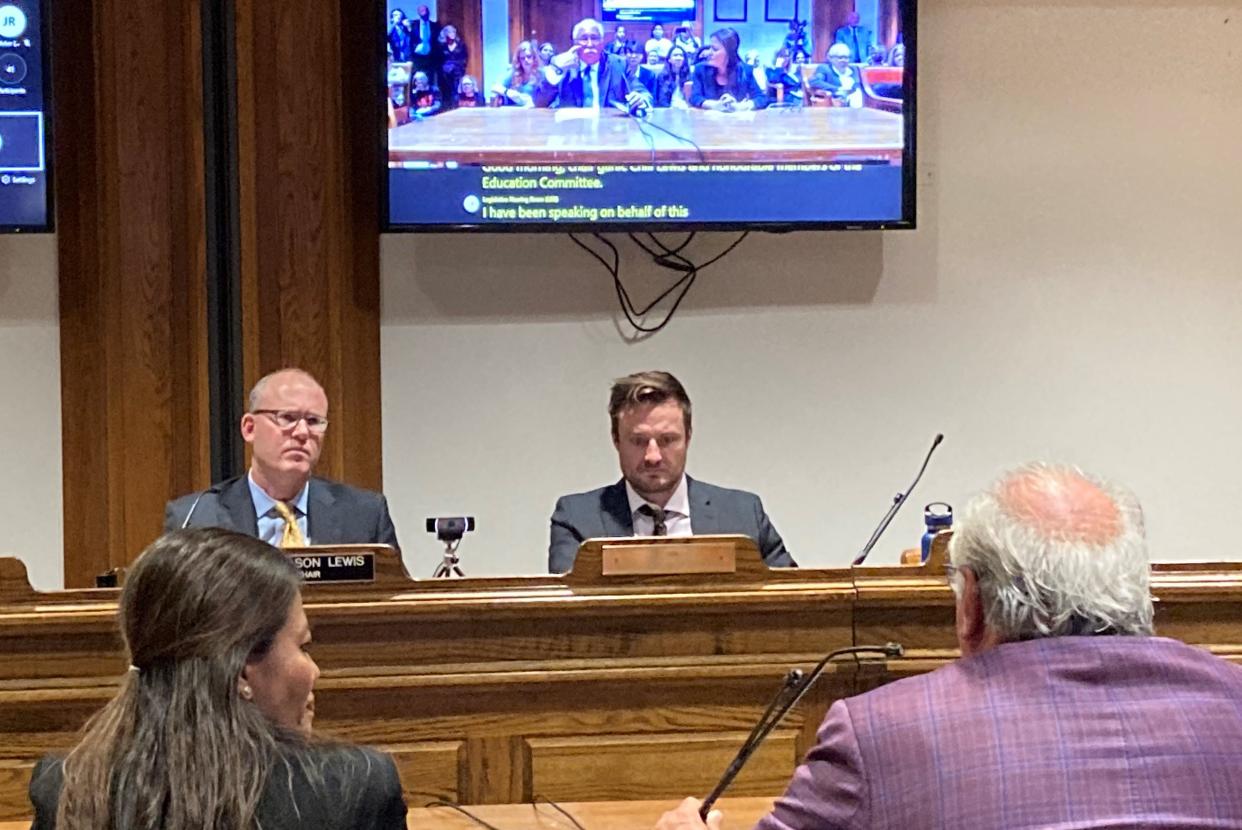State legislators hear educators, public health professionals and students push for sex ed

BOSTON - It has been a decade since the bill modernizing the state’s sexual education curriculum to be medically accurate, age-appropriate and LGBTQ+ inclusive was first filed in the State House by Rep. Jim O’Day, D-West Boylston, and Sen. Sal DiDominico, D-Everett.
Since then, the Senate has passed it four times and the House has left it to languish.
However, in June, Gov. Maura Healey announced that an updated draft framework would be submitted to the Board of Elementary and Secondary Education. The board opened a three-month public comment period on the framework and, in September, approved the draft.
The framework outlines what students should know at each grade level; districts are responsible for determining what curriculum and materials to use.
Legislation needed to prevent districts opting-out
The framework does not mandate that every public school district in Massachusetts incorporate the curriculum into its teachings. Passing the Health Youth Act would, O’Day said. It would also require the state to collect data on which districts have incorporated the curriculum, which districts need support for making the changes and also require the Department of Elementary and Secondary Education to review the curriculum at least once a decade.
“Schools could opt out without the passage of the Healthy Youth Act,” O’Day said in support of his legislation, which would also allow parents to review the curriculum and opt to exclude their children from the classes. “Some districts are teaching inaccurate, outdated material; it’s dangerous.”
Over the decade since the bill was first filed, dozens of students have found their way to the State House to support the proposed changes in sex ed curriculum. These changes focus on establishing healthy boundaries, issues of consent, body safety, self-care inclusion and medically accurate information.
They did so Wednesday, when they testified before the Joint Committee on Education.
From Newton, 17-year-old Maria told the legislators that misinformation about sex, sexuality, LGBTQ+ populations and even about contraception, transmission of STDs and pregnancy possibilities was rampant.
Kids need knowledge, students say
“Overall, kids need knowledge,” Maria said. Having students learn the medically correct names of body parts, teaching basic anatomy and human reproduction, is not wrong.
She is part of a Planned Parenthood League of Massachusetts Get Real Teen Council, active in different Massachusetts communities including Cambridge and Worcester. The council serves to educate youth about how their bodies work, how to build supportive and safe relationships throughout their lives and how to recognize toxic or abusive ones.
"Having the knowledge about what healthy relationships look like and how to properly protect yourself and your partner is important for people my age,” said Emmanuella-Dorothy M., a Worcester high school student and member of the Get Real Teen Council. “It will change the knowledge and empower everyone who is in a physical or nonphysical relationship.”
Christine DiTullio, a nurse practitioner at a school-based health center for Kennedy Community Health Center in Worcester, said many youngsters are ignorant of even the most basic bodily functions.
“I saw a 13-year-old boy, I’ll call him John, who was referred to me by a school nurse for a sore throat,” DiTullio said. As she conferred with the student, he mentioned leg pain. Further discussion revealed he was talking about having erections. “He had no idea that erections were a normal, healthy occurrence. That they were not a shameful thing.”
A spokeswoman for Fenway Health in Boston, an organization specializing in medical access for members of the LGBTQ+ community, said changing the curriculum to reflect medically accurate, age-appropriate and inclusive information about sex and sexual behavior is a matter of public health.
Misinformation has consequences
In her comments before the committee, Brittany Charlton, an associate professor at Harvard Medical School, said that four of five queer students do not learn about themselves in school. The students access alternate forms of sexual information including pornography.
“Queer young women are more likely to get an STD, get pregnant,” Charlton said. One of her patients, a young gay woman, told her she had known she was gay since she was little. On a lark, she had sex with a male friend and became pregnant.
“She told me she thought she was infertile, that she couldn’t get pregnant if she didn’t love the person, that she had been sexually assaulted once and did not get pregnant then,” Charlton said. She urged the committee to endorse the bill.
In opposition to the updated curriculum, Luke Halberstadt of Framingham took issue with the inclusiveness and gender-affirming education.
“Teaching children that gender is different from sex is confusing,” Halberstadt said. “A boy cannot become a girl; not one will ever give birth. A boy is a boy, a girl is a girl; do not teach the stupid lie that girls can become boys.”
This article originally appeared on Telegram & Gazette: Students urge lawmakers to memorialize new DESE framework for sex ed

